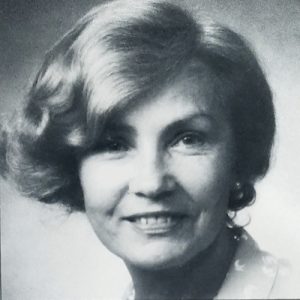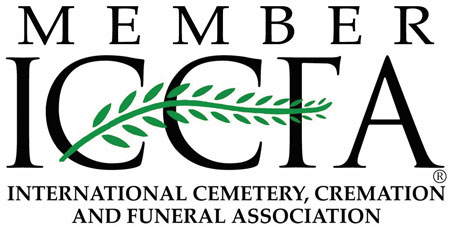We Remember

PEDAN-POPIL, Nadiya
—
Nadia Popil (aka Nadiya Pedan-Popil) was born in the early 1920s in Horlivka, Eastern Ukraine, Donetsk Oblast, that very same region presently contested and occupied by Russian military forces. She survived the horrors of the Stalin-era persecutions, land confiscation and the forced famine, the infamous Holodomor of 1932-33. Her family relocated to the city of Donetsk, where despite the Nazi invasion and occupation of 1941-43, she managed to obtain a baccalaureate degree in Russian language and literature from the Donetsk State Teachers Institute. Her youngest brother Slava was killed in battle in the war, her other brother Yevhen and sister Halyna survived along with her mother Anna. Her father Petro Pedan was previously incarcerated as a kulak under the Stalin regime and perished in an arctic Soviet gulag prison, a fact disclosed only in the 1950’s.
After WW2, she and her, now predeceased (2008), husband Jaroslaw (Jerry) immigrated to Canada in 1948 from the Mykola Lysenko DP camp in Hannover Germany, first landing under sponsorship, in Brandon, then Winnipeg and finally settling into the Ukrainian ex-patriate diaspora community in Toronto. While in Toronto she taught Ukrainian language, culture and history at the primary level at the Ukrainian National Federation then later at the high school level at St. Nicholas Catholic Church. Continuing her studies at the University of Ottawa, she obtained a Master of Arts Degree in 1965 in Ukrainian literature analysis. She started lecturing at the University of Regina Saskatchewan in 1967 and continuing her studies further obtained a doctorate magna cum laude from the Ukrainian Free University in Munich in 1969. At the University of Regina, she established an undergraduate Ukrainian humanities course program in the Department of Germanic and Slavic Studies, became department head and published a book of translations “Ukrainian Folk Stories by Marko Vovchok”, along with other numerous articles on language learning, teaching methods and literature analyses.
In retirement in Kelowna, she was active in the Ukrainian community participating in meetings of the Ukrainian Canadian Congress and leading many celebratory multi-media presentations: Shevchenko’s birthday, Ukraine Independence, etc., at the Ukrainian Catholic Church. Many of her oil paintings, taken up as a hobby in the 90s, remain in Kelowna homes. She always longed to rejoin, reconnect with her family in Ukraine to the very end. Now she is finally at peace.
She is survived by her son Roman (spouse Judy) retired scientist, residing in Arizona.
If you wish to send a condolence, post photos, or share a memory, please scroll down the page to the area called “Condolences”.


Our sympathies to you, Roman. Your mother was a very classy lady.
Neighbors, Bob & Vicki
Vicki thank you for your thoughts. Mom always looked forward to the ladies’ lunches you organized and told me about them.
To Dr. Popil’s family,
Thank you for posting her obituary in Regina’s Leader Post. I was a student of hers at the Department of Germanic and Slavic Studies, University of Regina in the 80’s. Also the departmental secretary (as we were called back then) for 10 years. I always admired her work ethic, and passion for education. I’m sorry, for your loss. Dr. Popil had a lot of style and was highly respected in our little community. She was one of my mentors and I’ve thought of her often. I expect she passed as gracefully as she lived.
My sincere condolences.
Joanna Kirsch
Joanna thank you, I remember Nadiya mentioning you at dinner conversations at home and we may have met, I did my undergrad physics at U of R 1973 – 1977
Roman & Family
Our sincerest condolences. Knew your Mother well in Regina; a wonderful lady.
Eugene Krenosky
Surrey, BC.
What an extraordinary life of survival and fortitude. Nadiya was obviously a brilliant and determined woman who left a legacy for many. My deepest condolences, Roman.
Ever lasting memory! Вічная Пам’ять!
Everyone from Lviv, Ukraine and Toronto sending our sympathy.
I wish I had had the privilege of meeting Dr. Popil. Having just read her obituary in the Toronto Star, I was filled with compassion for what she experienced in her early life and with admiration for what she accomplished thereafter. An incredible inspiration!
Dear Roman. My condolences on the loss of your beloved Mother. You probably don’t remember me ( you were about 5) but you were the ring bearer at my wedding in 1959. Your Dad was born in Luka, Ukraine – as was my late mother. Our families were close friends while you lived in Toronto and kept in touch after your moves to Regina and Kelowna. Your Mother was a wonderful, ambitious and very talented woman. She will be sorely missed by all who were fortunate enough to know her. My prayers are with you and your family at this sad time. “Vichnaya Pamyat”.
Very Sorry for the loss of an absolutely triumphal life. Nadiya conquered evil; Solzhenitsyn would be very proud of her, as are we all.